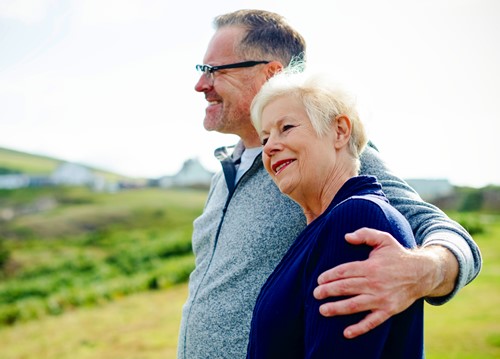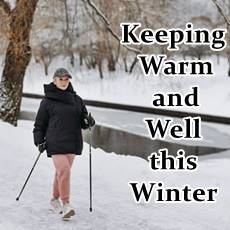Five Tips for Aging Well
Be your best as you age!
Fact Checked
×All the content published in our website is fact checked to validate its accuracy.
Visit our guidelines web page to learn more about our strict processes regarding how we review our content's sources: reliable and reputable journals, media websites, universities, colleges, organizations, and professionals.
Our articles are based on scientific evidence, and the references are included in its footnotes, which are clickable links to sound scientific papers.
First published: 11.Oct.2018
Tips for Healthy Aging
People all across the world are living longer and while growing old is part of life, these additional years should be free of mental and physical decline.
The key is to enjoy a better quality of life as you age.
Many age-related health conditions are linked to lifestyle and modifiable behaviours, so they can be prevented by positive lifestyle changes.
Taking action during midlife or even later will increase your wellbeing, maintain your body and mind healthy, and keep you independent as you age.
This article looks into these positive changes, and the impact they will have on your health and wellbeing.
References and Further Reading
(1) Steven H Woolf, Laudan Aron, (2018). Failing health of the United States. BMJ 2018; 360 doi: https://doi.org/10.1136/bmj.k496 (07 February 2018) BMJ 2018;360:k496
(2) Samuel H. Preston, Yana C. Vierboom and Andrew Stokes, (2018). The role of obesity in exceptionally slow US mortality improvement. Proc Natl Acad Sci U S A. 2018 Jan 30; 115(5): 957-961. 2018 Jan 16. doi: 10.1073/pnas.1716802115
(3) Health Education (HealthEd) New Zealand. Ageing well: How to be the best you can be. Revised March 2017. 06/2018. Code HE1148 ISBN 978-0-478-41166-9 (online)
(4) Charles Alessi and Elaine Rashbrook, (2016). Ageing well: how can we make longer lives healthier?. Public Health England Posted on: 1 October 2016
(5) Centers for Disease Control and Prevention (2017)Fact Sheets - Moderate Drinking. last updated: July 25, 2017
(6) Holt-Lunstad J, Smith TB, Baker M, Harris T, Stephenson D, (2015). Loneliness and social isolation as risk factors for mortality: a meta-analytic review. Perspect Psychol Sci. 2015 Mar;10(2):227-37. doi: 10.1177/1745691614568352
(7) Allen T. C. Lee, et al., (2018). Association of Daily Intellectual Activities With Lower Risk of Incident Dementia Among Older Chinese Adults. JAMA Psychiatry. 2018;75(7):697-703. doi:10.1001/jamapsychiatry.2018.0657
(8) Wurm S and Benyamini Y., (2014). Optimism buffers the detrimental effect of negative self-perceptions of ageing on physical and mental health. Psychol Health. 2014;29(7):832-48. doi: 10.1080/08870446.2014.891737. Epub 2014 Mar 17
(9) James, P., Kim, E. S., Kubzansky, L. D., Zevon, E. S., Trudel-Fitzgerald, C., & Grodstein, F. (2019). Optimism and Healthy Aging in Women. American journal of preventive medicine, 56(1), 116–124. https://doi.org/10.1016/j.amepre.2018.07.037
(10) Ardisson Korat, Andres V et al. (2024). Dietary protein intake in midlife in relation to healthy aging – results from the prospective Nurses’ Health Study cohort. The American Journal of Clinical Nutrition, Volume 119, Issue 2, 271 - 282. February 2024
About this Article
Five Tips for Aging Well, A. Whittall
©2018 Fit-and-Well.com, 11 Oct. 2018. Updated. 30.Oct.2024. Next review: 30.Oct.2028 https://www.fit-and-well.com/wellness/aging-well.html
Tags: aging, healthspan, lifespan





